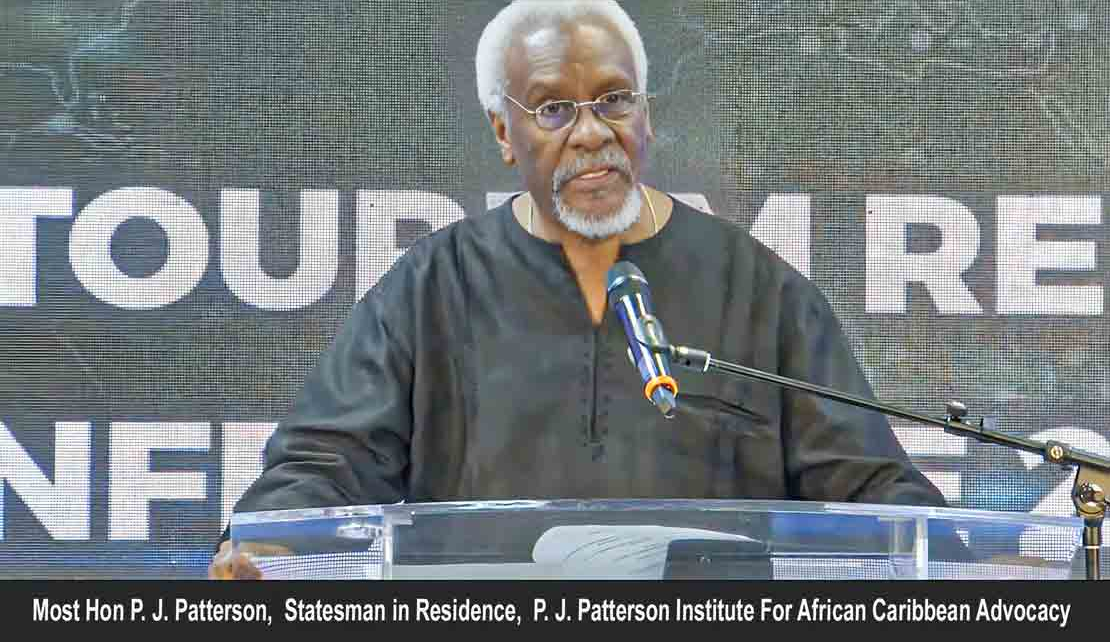JAMAICA | Patterson slams proposal for two-stage system to elect a president

KINGSTON, Jamaica, June 7, 2024 - FORMER Prime Minister PJ Patterson says he was quite alarmed at proposals by the Constitutional Reform Committee (CRC) for a two-tiered system for the election of a president.
Addressing a forum on Wednesday at the Faculty of Law at the University of the West Indies, Mona, Mr. Patterson said “It is absolutely unacceptable, must be vehemently resisted, and would totally destroy the purpose, intent and legitimacy of a head of State.
The CRC has recommended that the selection of the prospective president be done through a two-stage process of nomination and confirmation.
The CRC proposed that the nomination be done by the prime minister after consultation with the Opposition leader, with a view to arriving at consensus.
Following this, confirmation is to be done by the Parliament, in a joint sitting of both Houses, where members of each house vote separately by secret ballot to confirm the nominee with an affirmative vote by two-thirds majority of each House.
However, former Patterson noted that the proposal for a two-tiered system of the election of a president, “quite frankly fills [me] with great alarm”.
“It is absolutely unacceptable, must be vehemently resisted, and would totally destroy the purpose and the intent and legitimacy of a head of State because what it is saying is, nominated by the prime minister after consultation with the leader of the Opposition.
“And if you can’t get two-thirds, it speaks about taking into account political realities in our democratic system of government. It also provides a solution through the application of the majority rule to a problem where gridlock exists,” Patterson told the forum.
“You cannot afford gridlock in this. There are several things that can be done. In Barbados it is done by the prime minister and the leader of the Opposition. If you put that position in, you would not only get two-thirds, you will get unanimity.
“If you don’t put that in, and the first nomination fails to get the two-thirds, you must treat it like a papal consistory, that is to say, lock them up and don’t let them out until you have got a nomination then you can let the smoke out of the chimney, we have elected a new head of State,” said Patterson
At present , Mr. Patterson said, “no entrenched section or deeply entrenched provision of the constitution, can be altered without bipartisan support in our legislature. Fundamental changes cannot be imposed by a Parliamentary majority. Constitutional changes entail political consensus,” he declared.
As regards an expansion of the Senate, the elder statesman expressed reservations about the proposals in the report for the extension of membership in the Senate.
“Let me say very clearly, I am not opposed to a careful consideration as to whether you should get representatives in the Senate other than those which come from the political parties. I am saying that the categories would have to be specifically defined,” Patterson noted.
“They would have to provide for the people within that category to do that selection and not vest it in the head of State, because if you vest it in the head of State, you are having interference by the head of State in the legislative process and that you cannot afford.
I am saying if you are going that route; consider very carefully whether the representatives of the Diaspora should not have some role or some voice,” Patterson said.
In stating that he was “not proposing it as a settled matter”, the internationally respected politician and attorney-at-law said the inclusion of members of the Diaspora has to be given further consideration.
“If you are going for putting in the Church, the private sector, the unions, the NGOs, there is a very important group called the Diaspora so you would have to look at whether or not you are going to include them and if so, how; because the oath of allegiance those citizens are required to take, make it inconsistent for them to be servicing simultaneously in the Jamaican Parliament,” Patterson argued.
“Please also note that there are several Jamaicans who have lived, particularly in the United States for years, have children and grandchildren, who to this day operate on green cards because they refuse to take an oath of allegiance which will in any way seem to renounce their Jamaican citizenry. So, this matter really needs very careful further consideration,” Patterson Observed.
In April last year, Prime Minister Andrew Holness, named the members of the CRC, which is co-chaired by Minister of Legal and Constitutional Affairs Marlene Malahoo Forte and Ambassador Rocky Meade.
The CRC was asked to assess how the passage of time had impacted the recommendations of the 1995 Joint Select Committee on the Constitutional and Electoral Reform. The work is being done in three phases.
The recommendations for the first phase which were recently submitted to and approved by the Cabinet before being tabled in the Lower House, were not signed off by the Opposition as it did not include provision for the Caribbean Court of Justice as the country’s final court of appeal.
-30-

 En
En  Ar
Ar